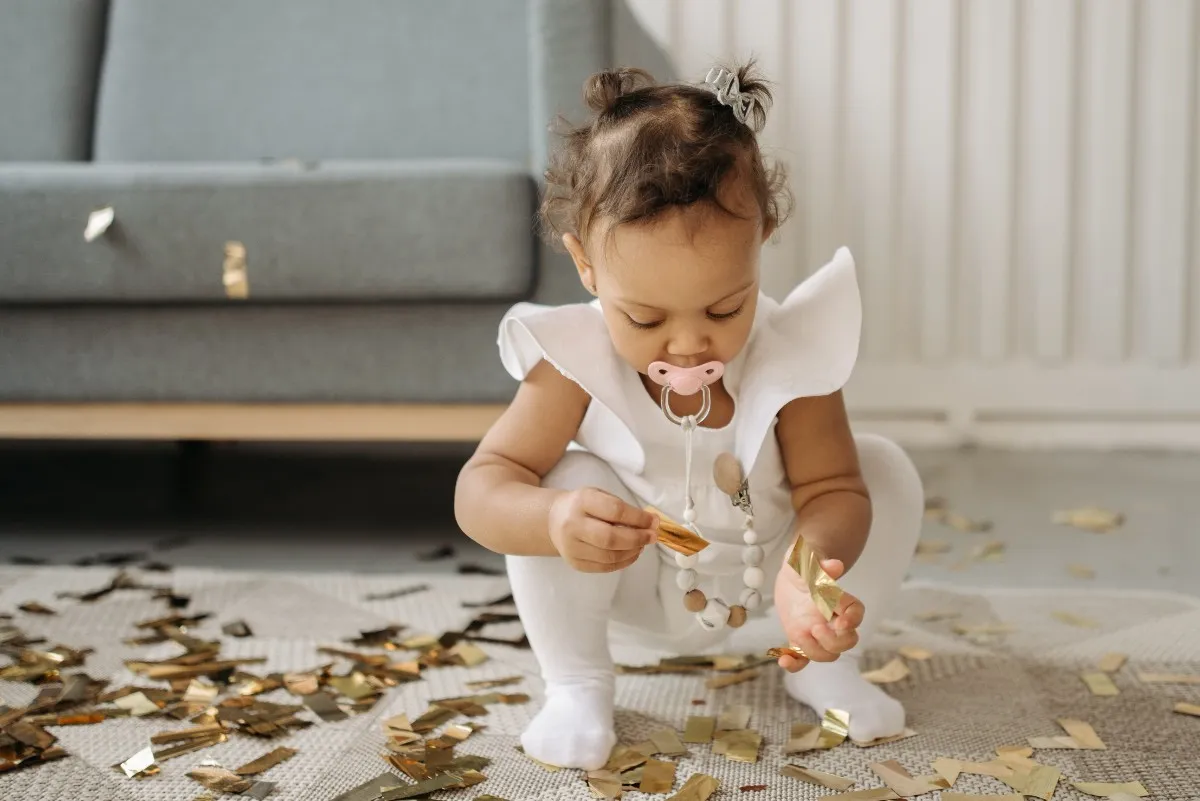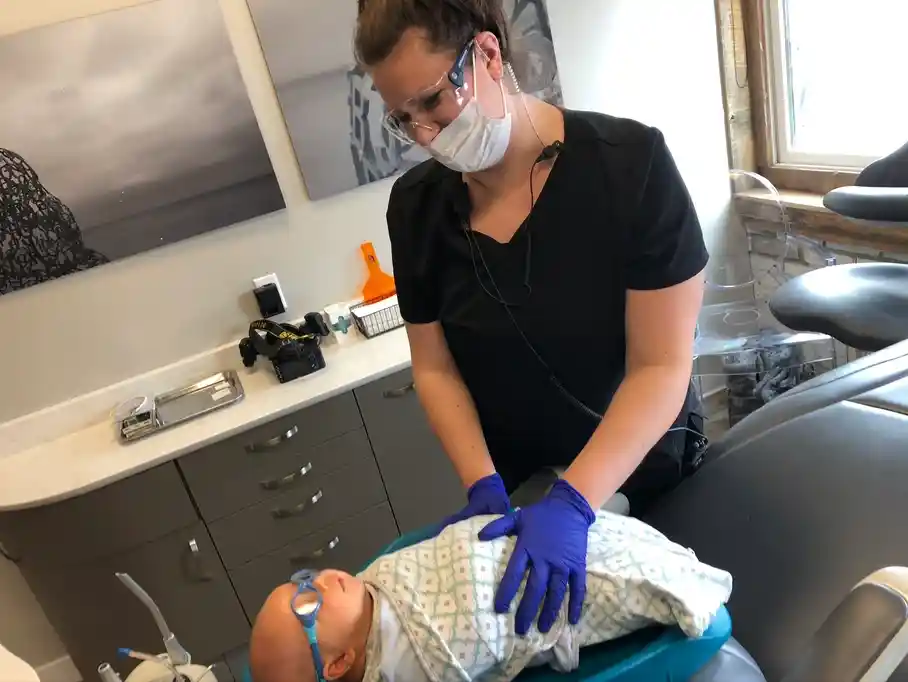Many parents are unaware of the damage by prolonged sucking for their child’s growth and development. This includes pacifiers, bottles, and thumb-sucking. Did you know that long-term changes in a child’s jaw development from sucking can begin as early as six months? Because of that, the American Academy of Pediatrics recommends stopping pacifier use at six months. It is important for you to understand the possible side effects of overuse or prolonged use of these items and behaviors to avoid long-term damage.
The Ideal Age to Wean Babies from Pacifiers, Bottles and Thumb-Sucking
It is common for babies to use oral behavior, such as thumb sucking, as a self-soothing method, but not necessarily normal. When you use a pacifier or allow this behavior to continue into your baby’s toddler years, it can negatively impact the development of their teeth, face, airway and mouth.
It is best to start weaning your baby off pacifiers, bottles, and thumb-sucking by 6 months and eliminate them altogether by 10 months (we know it’s easier said than done). However, by weaning now, it will make it easier for your child’s development and health in the long-run.
The Side Effects of Pacifiers, Bottles and Thumb-Sucking
There are many side effects of prolonged oral behaviors common to babies, including:
Open bite
Open bite means your child’s lower and upper molars won’t fit together when they close their jaw. It can either be an anterior open bite, which means their top and bottom front teeth don’t overlap, or a posterior open bite where their back teeth don’t touch when they close their mouth. Open bite leads to several issues including:
- Speech impediments such as a lisp
- Chewing issues
- Swallowing issues
- Improper saliva flow
- Improper tongue positioning
Misaligned bite
There are other types of misaligned bites, each leading to a long list of issues including:
- Painful cuts due to an increase of biting the inner cheeks or tongue
- Difficulty and discomfort when eating
- Speech impediments
- Mouth breathing
Misaligned jaw
Misaligned jaws are related to how your child’s upper and lower jaw line up. Because the development of the jaw occurs in the early years, the best approach to avoid a misalignment is to wean your child off oral behaviors such as pacifier use and thumb sucking. Some other developmental issues that come about from a misaligned jaw are:
- Orofacial structural issues such as the upper jaw being too narrow
- Development of a long face growth pattern
- Off-center chins or asymmetry in the appearance of your child’s face
- Breathing issues
- Mouth breathing
Misshapen mouth
Prolonged thumb sucking and pacifier use can also cause problems with proper mouth growth which can make the mouth appear misshapen. It can also affect the way your child swallows and chews food.
Tilted teeth
The longer children use a pacifier or suck their thumbs, the more risk there is for tilted teeth. If a child is weaned before the age of two, any issues with their teeth tend to correct themselves. However, sucking beyond 24 months usually requires orthodontic appliances to correct the issues.
Tips to Help Break the Habit
There are a few ways to help your child break the habit of sucking beyond the age of 6 months. Ideally, it’s best to start weaning at 6 months and completely eliminate the habit by 10 months. Some of the tips to break the sucking habit include:
- Start as early as possible to help your child slowly get used to not using the pacifier or their fingers to self soothe.
- Be aware of how often you’re using the pacifier or seeing your child suck their thumb. If it’s at every whimper or wean, try to eliminate that habit first. Next, focus on naps, and night-time after that.
- Give your child a few seconds to calm down before giving them the pacifier.
- Try to get to the point where you’re only offering the pacifier in extreme situations, or once or so a day.
- Begin to sub-in a strengthening/habit appliance such as the MyoMunchee as a replacement, or “big-kid paci.”
- Establish a bedtime or naptime routine so that your child starts associating other things with nighttime other than the pacifier or thumb sucking.
- Keep the pacifier out of sight when you don’t plan on offering it.
- Praise your child for not using the pacifier or sucking their thumb.
- Meet with an OT, SLP, Myofunctional Therapist, or IBCLC who specializes in stopping the habit.
- Give yourself some credit – it’s difficult to break the sucking habit regardless of your child’s age.
If you’d like to learn more about pacifiers, bottles and thumb-sucking, schedule your next appointment with Dr. Elizabeth Turner and Courtney Krei, RDH, OMT and we’ll get to know you and evaluate your unique needs.
Interested in learning more about the proper development and function of facial muscles? Visit our myofunctional therapy page here.






